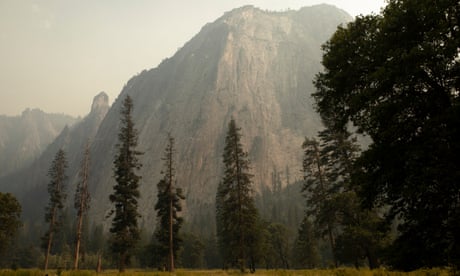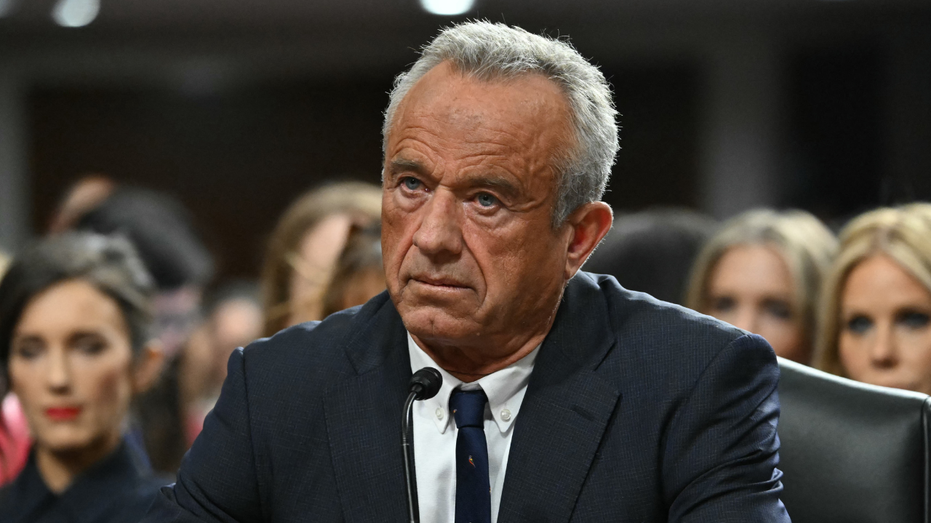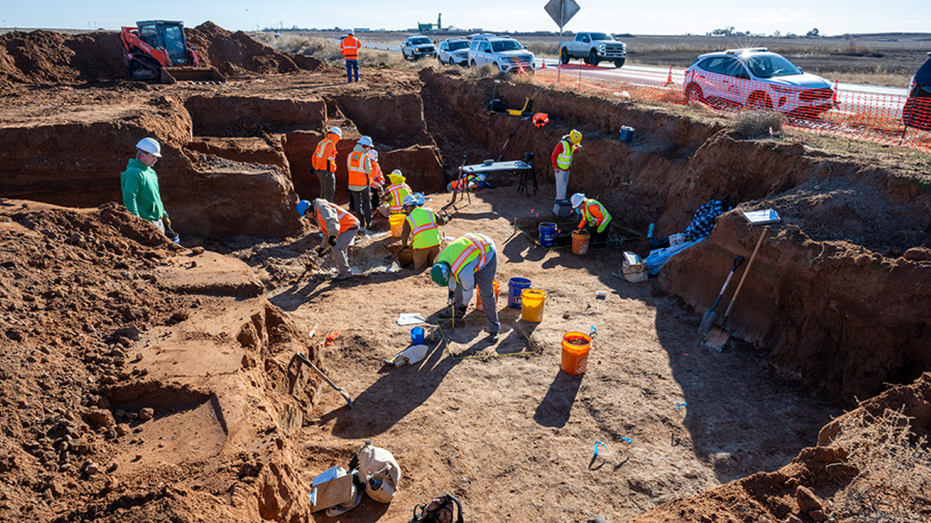- by foxnews
- 24 May 2025
‘Parks are wild by nature’: Yosemite visitors undeterred by raging forest fires
‘Parks are wild by nature’: Yosemite visitors undeterred by raging forest fires
- by theguardian
- 27 Jul 2022
- in news

Yosemite national park's dramatic vistas were shrouded by a thick grey haze on Monday afternoon, as smoke from the fiercely burning Oak fire hung over its granite peaks. Along the road winding toward the valley, skeletal trees told the story of the Washburn fire that tore through just weeks earlier.
The blazes - the two largest to ignite in California so far this year - have besieged Yosemite during one of its busiest months, causing entrance closures, cancellations, and cloaking the landmark in hazardous air.
But many visitors, some of whom have travelled to see the sights from across the US and around the world, were determined not to let the conditions slow them down. On Monday afternoon, as the air quality index (AQI) pushed past 250, a level categorised as very unhealthy, cars zigzagged through the park carrying bikes and inner tubes, ready for the day.
Under a fiery-orange glow, visitors could be seen picnicking, trekking, and floating in the river despite the strong scorched scent that filled the air as ash danced in the breeze. Tents still lined campgrounds throughout the valley, bikes crisscrossed through the paths alongside emergency vehicles, and people piled on to the shuttle.
Mark and Victoria, aged 12 and seven, who had travelled all the way from Finland, managed to get one swim in the river before calling it a day because of the declining air quality. "We have still had a great day today - better than expected," their father, Rami Madanad, said as he watched them from the shore alongside his wife, Marina. They had only planned for one day in the park and were trying to make the most of it, but everyone's eyes had begun to burn.
Others, however, were wavering on whether they would brave the harsh conditions. Darren Stehle brought his family down from Oregon. They had already had to cancel plans to go to one national park this year due to natural disaster, when Yellowstone was hit by record-breaking floods. "And then we decided to do this," he said, shaking his head and laughing as he peered out over Tunnel View vantage point, now completely clouded in smoke.
"If the kids want to get out we will get out - even though we have a reservation for two nights," Mike Dyangko, who was there with Stehle, said of his grandchildren. "It's not worth them getting sick."
Yosemite, which typically has more than half a million visitors each July, has been hammered by fire this month. National Park Service (NPS) officials and hospitality representatives with Aramark, the company that handles the park's reservations, recreation and restaurants, say they closely monitor hazards and work with local health officials to determine if closures are essential. But often the park remains open even when risks are present.
"For a lot of folks this is their visit," said the Yosemite spokesperson Scott Gediman, noting that the NPS does what it can to keep the park open. "The health and safety of the firefighters and visitors is our paramount concern," he added. But, with air quality fluctuating throughout the day, he said Yosemite provided information and options to guests and expected them to make up their own minds using good judgment. The park would not close, he said, "unless the air quality becomes consistently dangerous for everybody".
The park does offer more leniency with cancellations as the air quality deteriorates and enables more sensitive groups to opt out without penalty. Facilitated outdoor activities, such as bike rentals and pool access, also shut down when AQI spikes above 150 - a level considered unhealthy for sensitive groups. Clean air stations are open for staff around the clock and officials said decisions are adapted as conditions change.
"Fires, floods, rock-falls - these are natural processes, and that's what a national park is all about," Gediman said. But officials still do all they can to mitigate disasters, and these fires are being attacked for full suppression. "National parks like Yosemite are wild by nature," he added. "People understand that and people are for the most part making good decisions."
In recent years, however, these hard decisions have had to be made more often. Fuelled by the climate crisis, disasters are on the rise. Fires are burning more ferociously, especially in parched, overgrown landscapes across California's Sierra Nevada. The constant threat of catastrophe - or even just uncomfortable conditions - is enough to drive some to give up on the park.
"There's so much fire damage," Aaron Ford said, leaning on his car loaded up with bikes. "We'd never been to Yosemite so our plan was to just get out and hike around," his wife, Kim, added. "But now we are planning to skip the hiking."
The Ford family, who were visiting from Malibu, California, do not plan on trying again soon. Even after reserving passes, they decided to cruise through quickly, heading to the clearer skies in Mammoth farther east.
"It's hard because it feels like there's a fire here every year," Kim said. "If you want to book anything you have to book a year in advance," she added. "The chances are high that there's going to be something like this."
- by foxnews
- descember 09, 2016
Texas road construction unearths 'colossal' prehistoric remains of 'big ol' animals'
Archaeologists in Texas recently discovered prehistoric megafauna bones, including a giant ground sloth, during a highway project in Lubbock, according to officials.
read more


